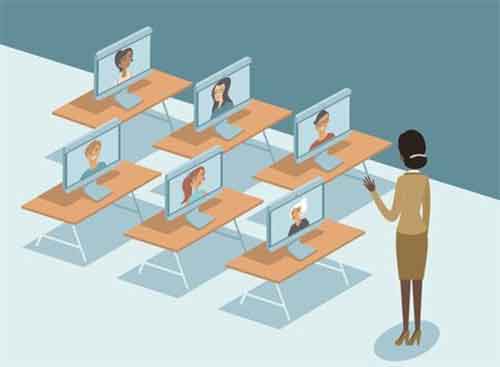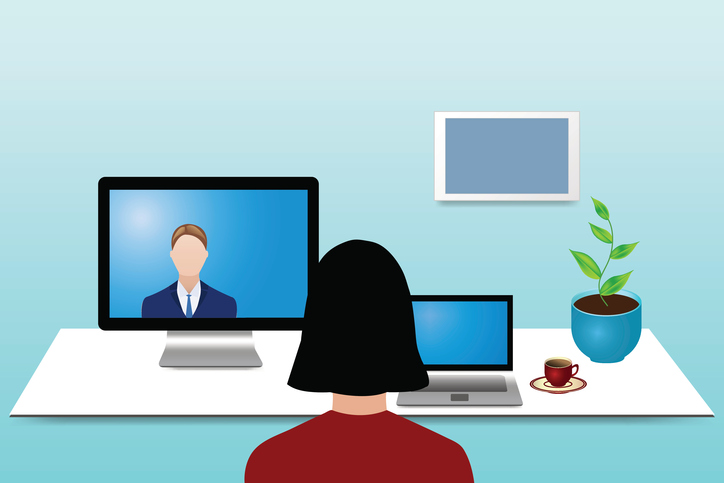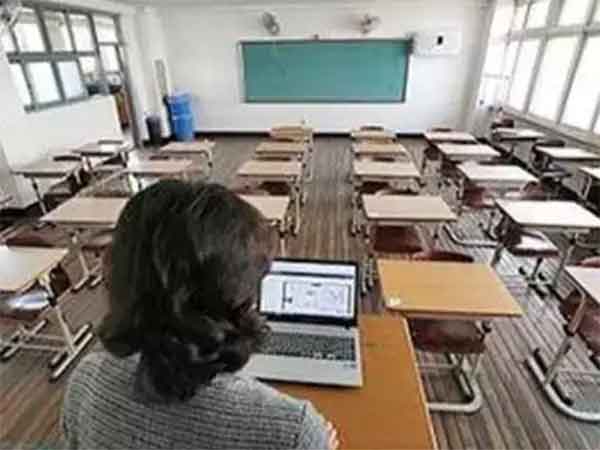
The Corona virus outbreak has presented unprecedented challenges to different areas of public life, especially the education system. Due to the pervasiveness of a novel virus, the closure of educational institutions and rebooting of learning, educational institutions are accompanied by frantic efforts to accomplish the syllabi in some or the other way. In this desperate situation, online education has been adopted as a strategy to continue with teaching tasks or basically transfer knowledge. In response to the significant demand of digital technology, many online learning platforms are offering free access to their services. As the world has moved to digital spaces to make up for the loss of physical spaces during this pandemic, it is commonly seen how the use of technology has enabled us to carry on teaching– learning through online classes and to accomplish the syllabi through these means.
However, the present strategy has deepened the social and economic divide and made it worse for those who do not have access to these mediums. India is already driven by vast socio-cultural diversities, varied home environments and economic inequality. It is a well-known fact that the conditions have never been ideal to learn through the online mode. Unfortunately, no one has thought how far the strategy of online teaching will help students who are at the bottom rung of an unequal society. Online learning serves only a limited number of elite class students and is completely out of the reach of the children of the majority. This section has already been left behind in the ownership of devices with advanced storage capacity. While institutes and enterprising teachers are trying to promote e-learning among their students, such underprivileged sections or those living in far-flung areas are finding it difficult to keep up with the syllabi.
As a teacher in education, I was keen to understand this phenomenon more deeply through discussions with parents and teachers. Many parents who might be lacking substantial levels of education, expressed anxiety about online learning because of insecurities related to the risks involved in online exposure to children. Their worry lies in the child’s access to unwanted misleading ‘knowledge’ available on the Internet. Meanwhile teachers expressed that it is not a substitute but can be an appendage to classroom teaching and to supplement other pedagogic practices. Teachers also viewed this mode of education as discriminatory, which may create a feeling of inferiority among the children of poor who are from the other side of the digital divide and are deprived of technological gadgets and facilities to access online education. Online teaching can have many negative effects on the students and will further marginalise the already marginalised.
A critical understanding of the limitations of the online teaching mode is required before using it as an easy substitute of classroom teaching. It is to believe that the online teaching mode is against the meaning and purpose of education. Education does not mean curriculum communication, rather it requires social and critical engagements for explorations of the mind, which is not possible through online modes. The development of intellectual abilities to deconstruct and evaluate the given knowledge is possible with direct human engagement, which depends not merely on teacher -student interaction but also with fellow students and peer group. It seems that this pandemic has utterly disrupted the Indian education system, which was already losing its relevance and role amidst its failure to fulfil the minimum basic needs for holistic human development through its prime focus on rote learning and academic skills neglecting critical thinking and adaptabilities.
Some are wondering whether the adoption of online learning will continue to persist once we resume our life after this pandemic, and what would be the implications. It is hard to rule out that with this plea the decades-old agenda of the state to slowly withdraw its responsibility of education might become easier. It has been taking place through reduction in funds in order to make education self- financed accompanied by the meagre role of a teacher. Educational theorists worldwide have already cautioned us about this phenomenon. In his book The Digital Diploma Mills, David Noble unveils the sordid face of corporate interests promoting online education with the collaboration of educational institutions. He writes that the primary motive of such corporates is to bring the faculty under disciplinary control and to deskill it and finally to dispense with it. A common plea one hears these days is that students love hi-tech instruction and it increases their learning outcomes. Indeed, the onset of pedagogic processes with digital technology is increasingly being hailed as a symbol of progress and modernization. While a major International study by OECD evidently concluded that digital education doesn’t improve the academic score rather leads to low learning outcomes. The arbitrariness in the adoption of new pedagogies requires to be seen in broader context. The present situation is, of course, an unprecedented one. Yet, we have to be cautious of the education needs of the majority by adopting more just and inclusive strategies .
Satvinderpal K., Professor, Department of Education, Panjab University Chandigarh
SIGN UP FOR COUNTERCURRENTS DAILY NEWS LETTER
















































